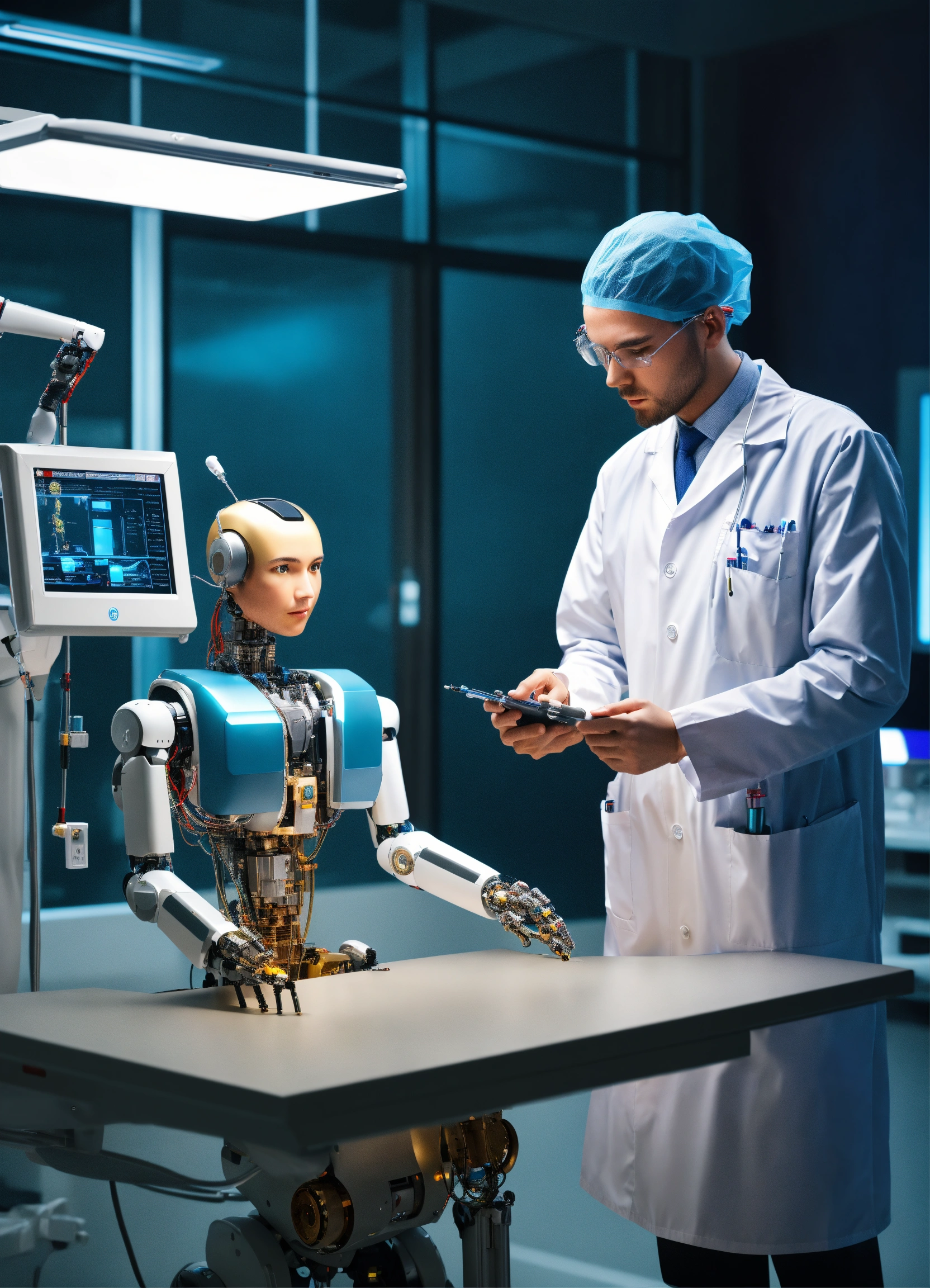The Role of AI in Revolutionizing Healthcare:
Artificial Intelligence (AI) is revolutionizing the healthcare industry, improving diagnosis, treatment, drug discovery, and patient care. In 2025, AI-powered solutions are helping doctors, hospitals, and researchers provide faster, more accurate, and cost-effective healthcare services.
Let’s explore how AI is reshaping the future of medicine and improving patient outcomes.
1. AI in Medical Diagnosis: Faster & More Accurate Disease Detection
AI is helping doctors detect diseases with greater accuracy and speed. AI-powered diagnosis:
✅ Analyzes medical images (X-rays, MRIs, CT scans) to detect diseases.
✅ Identifies cancer, tumors, and infections in their early stages.
✅ Uses deep learning algorithms to predict disease progression.
✅ Reduces misdiagnosis rates, improving patient safety.
Companies like IBM Watson Health, Google DeepMind, and PathAI are using AI to enhance medical imaging and diagnostics.
2. AI-Powered Virtual Health Assistants: 24/7 Medical Support
AI chatbots and virtual assistants are helping patients manage their health by:
✅ Providing instant medical advice based on symptoms.
✅ Scheduling doctor appointments and sending medication reminders.
✅ Answering health-related questions using AI-driven knowledge bases.
✅ Reducing hospital visits, making healthcare more accessible.
AI-powered assistants like Babylon Health, Ada Health, and Woebot are making healthcare more convenient and personalized.
3. AI in Personalized Medicine: Tailored Treatments for Every Patient
AI is enabling personalized medicine, where treatments are customized based on a patient’s:
✅ Genetic data, ensuring precision treatments.
✅ Medical history, identifying potential risks.
✅ Lifestyle and environmental factors, improving health outcomes.
✅ Real-time monitoring, adjusting treatments as needed.
Pharmaceutical companies like Novartis and Pfizer are using AI to develop personalized treatments for diseases like cancer, diabetes, and heart disease.
4. AI in Drug Discovery: Speeding Up New Medicine Development
AI is accelerating drug discovery by:
✅ Analyzing millions of chemical compounds to find potential drug candidates.
✅ Predicting how drugs interact with the human body.
✅ Reducing research costs and time, leading to faster treatments.
✅ Helping in vaccine development, like during the COVID-19 pandemic.
AI-driven platforms like BenevolentAI, Insilico Medicine, and Atomwise are revolutionizing pharmaceutical research.
5. AI-Powered Robotic Surgery: Precision and Safety in Operations
AI-assisted robotic surgery is enhancing precision and minimizing risks. AI-driven robotic systems:
✅ Assist surgeons in complex procedures with millimeter precision.
✅ Reduce human errors during surgery.
✅ Use real-time AI analysis to adjust surgical techniques.
✅ Shorten recovery times, improving patient outcomes.
AI-powered robots like da Vinci Surgical System and Medtronic Hugo are transforming minimally invasive surgeries.
6. AI in Mental Health: Digital Therapists and Emotional AI
AI is helping mental health professionals provide better care by:
✅ Detecting signs of depression and anxiety through speech analysis.
✅ Providing AI-driven therapy sessions via chatbots.
✅ Monitoring emotional well-being using wearable devices.
✅ Recommending mental health resources based on individual needs.
AI-powered platforms like Woebot, Wysa, and Replika are making mental healthcare more accessible and affordable.
7. AI in Medical Research: Analyzing Big Data for Breakthroughs
AI is assisting researchers by analyzing vast amounts of medical data to:
✅ Identify disease patterns and risk factors.
✅ Predict the effectiveness of new treatments.
✅ Accelerate genetic research, improving our understanding of hereditary diseases.
✅ Improve pandemic preparedness, detecting outbreaks early.
AI-based platforms like Google DeepMind’s AlphaFold and IBM Watson Health are leading cutting-edge medical research.
8. AI-Powered Wearable Health Devices: Real-Time Patient Monitoring
AI is transforming wearable health tech, helping users monitor their health 24/7. These smart devices:
✅ Track heart rate, blood pressure, and oxygen levels.
✅ Detect irregularities in heartbeat or breathing patterns.
✅ Provide early warnings for health issues like strokes or heart attacks.
✅ Sync with AI-powered health apps for real-time health advice.
Wearables like Apple Watch, Fitbit, and Garmin use AI to improve health monitoring and prevent emergencies.
9. AI in Hospital Management: Enhancing Efficiency
Hospitals and clinics are using AI to improve efficiency and patient care by:
✅ Optimizing patient flow, reducing wait times.
✅ Predicting hospital resource needs, ensuring availability.
✅ Automating administrative tasks, reducing paperwork.
✅ Improving patient-doctor matching, enhancing treatment success.
AI-powered hospital management systems like Epic, Cerner, and Health Catalyst are making healthcare operations more efficient.
10. The Future of AI in Healthcare
By 2030, AI in healthcare will include:
✅ AI-driven drug repurposing, finding new uses for existing medications.
✅ Nano-AI bots, delivering targeted treatments inside the body.
✅ AI-powered telemedicine robots, providing remote consultations.
✅ Fully automated hospitals, where AI manages most operations.
With AI-driven advancements, healthcare will become more efficient, personalized, and accessible for all.
Conclusion: AI is Transforming Healthcare
AI is revolutionizing healthcare by improving diagnosis, treatment, drug discovery, and patient care. With AI-powered solutions, the medical industry is becoming more efficient, accurate, and accessible.










